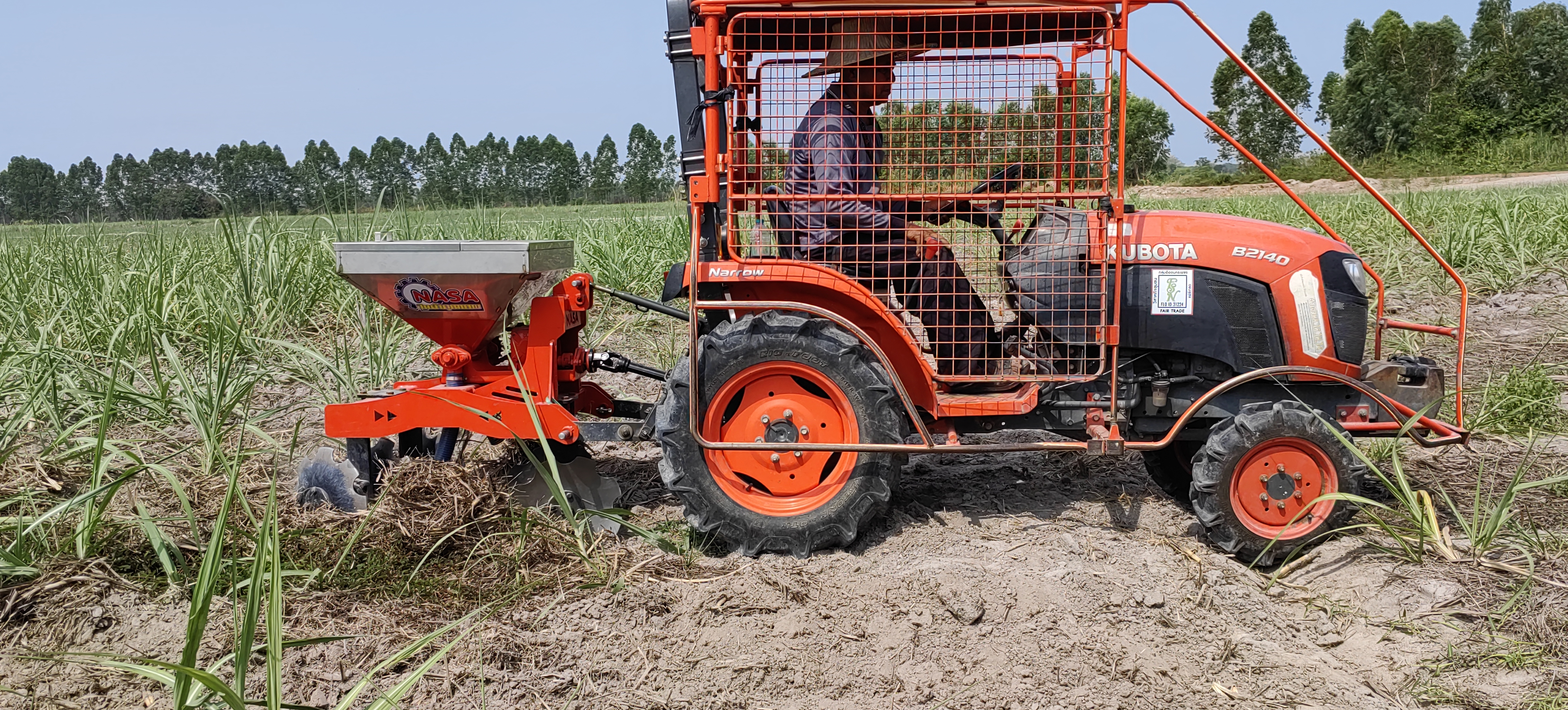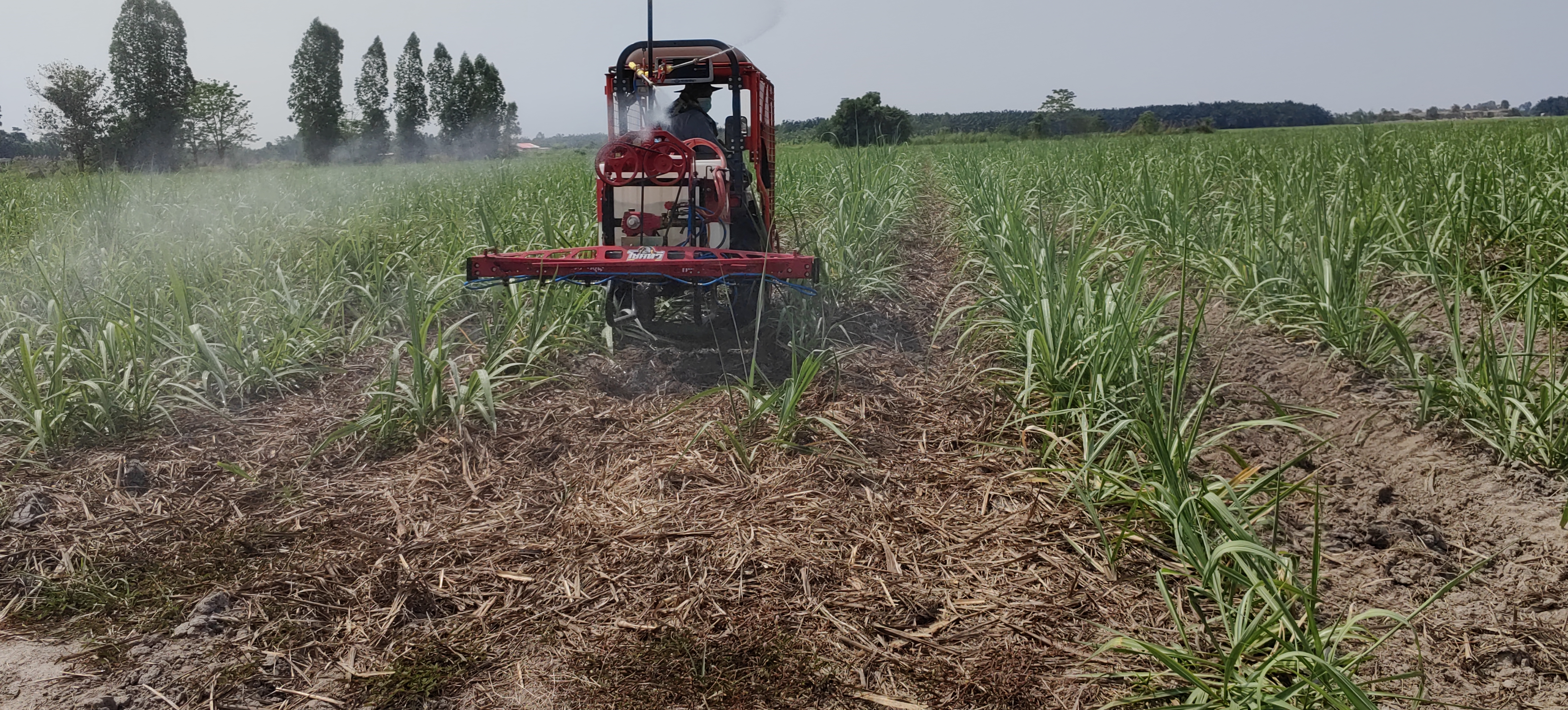Sugarcane farming involves the cultivation of tall perennial grass, primarily for the extraction of sugar. It is a labour-intensive crop that requires specific growing conditions and careful management throughout its growth cycle. Upon the completion of sugarcane harvesting, substantial biomass of leaves and residues remains. Traditionally, farmers have resorted to burning these sugarcane leaves on-site to facilitate the germination of new sugarcane from the stalk. Unfortunately, this practice leads to severe air pollution in the sugar cane production area and contributes to climate change due to the release of carbon dioxide.
A mitigation and adaptation workshop was conducted by Fairtrade NAPP in the Fairtrade Sugarcane planting area in Kamphaeng Phet Province, Thailand. Recognizing the need to modify their cultivation practices, the workshop was attended by Fairtrade sugarcane farmers belonging to the producer organization Nakornphet Fairtrade Sugar Cane Group to gain a wider knowledge of new technology and machinery that are helpful in mitigating climate change. Funded by the Fairtrade NAPP-PSR budget, they identified the potential to employ a special plough that can efficiently chop the organic residues and incorporate them into the soil. This technique not only aids in capturing carbon in the soil but also helps control weeds in the field, eliminating the need for herbicide spraying.
 This project was driven by several key aims:
This project was driven by several key aims:
1) Increasing carbon sequestration in the soil to combat climate change.
2) Reducing carbon emissions, thereby contributing to a cleaner environment.
3) Enhancing soil condition and organic matter content in the fields.
4) Minimizing the use of herbicides for weed control.
To achieve these goals, the group have acquired a special plough and a bio-extract sprayer. Group members can now borrow these tools and attach them to their tractors, allowing for the efficient chopping of organic residues and the application of bio-extract to expedite decomposition. This process not only breaks down sugar cane leaves but also nourishes plants, fosters healthy sugar cane growth, and restores soil health. Today, this project has directly impacted 15 families of producer farmers and ultimately benefitted the sugarcane factory and neighbouring villages.
This will have the following impact-
1) The shift from the traditional practice of burning sugar cane leaves and debris to the implementation of the ploughing technique will have a significant positive impact on the air pollution situation in the area. By avoiding the release of harmful pollutants from burning, such as smoke and particulate matter, the project will contribute to cleaner and healthier air for the local community and the environment.
2) Furthermore, the adoption of the ploughing technique will bring about improvements in the soil by increasing organic matter content. Incorporating chopped organic residues into the soil enhances its fertility, structure, and nutrient-holding capacity. This, in turn, leads to improved soil health and productivity, creating a conducive environment for sugar cane growth.
By promoting sustainable agricultural practices, this project not only addresses the immediate concerns of air pollution and soil quality but also supports the long-term sustainability and productivity of sugar cane farming in the region. Through Fairtrade’s commitment to sustainable sugarcane farming in addition to our collaboration with producer organizations, we are addressing environmental challenges, reducing pollution, and promoting soil health. By embracing innovative techniques, we aim to serve as a model for other farmers and contribute to a more sustainable and resilient agricultural sector.





